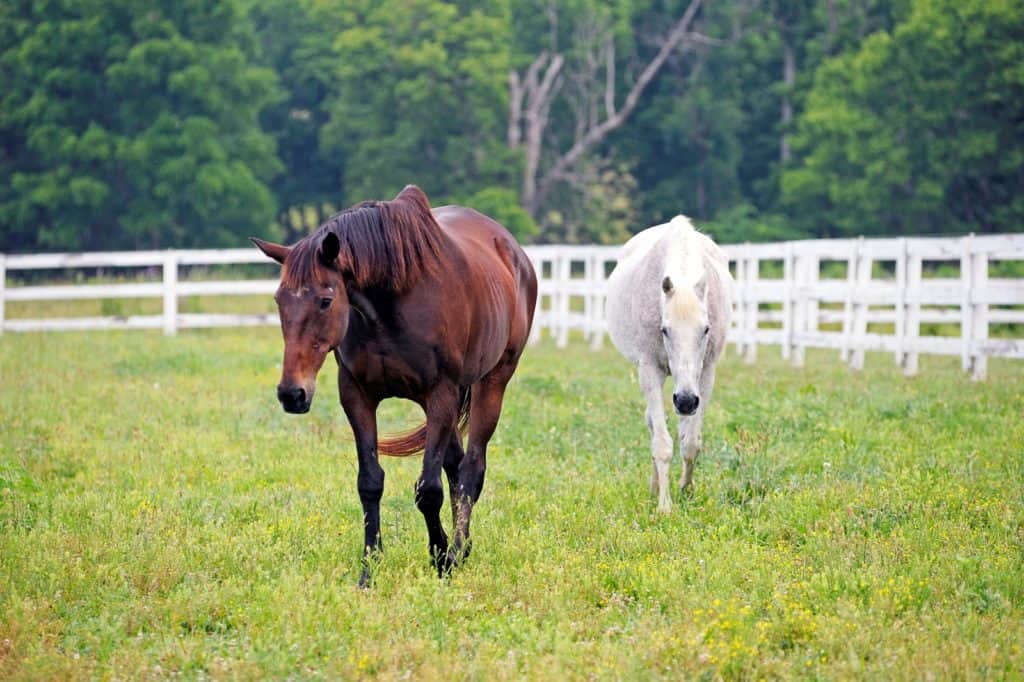Feeding insulin resistant horses can be a delicate task that requires both understanding and expertise. These horses require specialized care to manage their condition effectively and maintain overall health. Maintaining a balanced diet is crucial for horses with insulin resistance, a common metabolic disorder.

Understanding Insulin Resistance in Horses
Insulin resistance in horses mirrors type 2 diabetes in humans. Horses with this condition cannot efficiently utilize sugars and starches, leading to health issues such as equine obesity and laminitis. Understanding the root causes of insulin resistance is the first step in formulating a diet that keeps your horse healthy and active.
Signs and Symptoms of Insulin Resistance
Recognizing the signs early can help in the management of insulin resistance. Common symptoms include increased thirst, frequent urination, weight gain, and a cresty neck. Regular vet check-ups and blood tests can aid early diagnosis. For those interested in a more detailed breakdown of potential deficiencies, you might find this resource helpful.
Diagnosing Insulin Resistance
Veterinarians often diagnose insulin resistance using blood tests to check insulin and glucose levels. Early detection allows for dietary adjustments, increasing the chances of effective management and overall health improvement.
Key Nutritional Considerations
Feeding insulin resistant horses involves understanding their specific nutritional needs. The diet should focus on controlling sugar and starch intake. Feeding strategies may vary depending on the severity of the condition.
Low Sugar and Starch Diet
A diet low in sugar and starch is essential. Hay and pasture should contain less than 10% non-structural carbohydrates (NSC). Using tools like a hay analyzer can help in sourcing appropriate forage.
High Fiber Content
Opting for high-fiber diets helps satisfy hunger without increasing blood sugar levels. Horses thrive on fibrous feeds, which should form the bulk of their diet.
Choosing the Right Feed
When feeding insulin resistant horses, choosing the correct feed is vital. Numerous commercial feeds cater to insulin resistant horses, and collaborating with your vet can ensure you make the best choice.
Role of Supplements
Supplements play a crucial role in bridging nutritional gaps. Biotin, magnesium, and chromium are often recommended. For more information on balancing supplements, visit this page on biotin for horses.
Assessing Body Condition Score (BCS)
Maintaining a regular check on your horses body condition is important to ensure it remains within a healthy range. A vet can guide on how to measure and maintain a proper BCS.
Managing Exercise and Weight
Exercise is crucial for horses with insulin resistance, as it aids in metabolism improvement and weight control. However, it’s essential to balance the physical activities based on the horse’s fitness level and condition severity.
Exercise Regimens for Insulin-Resistant Horses
Begin with gentle exercises such as walking and gradually introduce more strenuous activities while observing your horse’s response.
Monitoring Weight and Health
Providing a scale in your horses diet management plan aids in tracking weight fluctuations. It is essential to maintain communication with your vet regarding any health changes.
Alternative Feeding Options
Finding alternative feeds like beet pulp or alfalfa can provide essential nutrients without upsetting their sugar balance.
Using Pasture Alternatives
Pasture turnout should be managed. Grazing muzzles can help restrict their intake, allowing them access to fresh air while controlling how much they eat.
Conclusion
Proper management of feeding insulin resistant horses requires understanding their unique dietary needs. By maintaining a low-sugar diet, ensuring regular exercise, and monitoring weight, horse enthusiasts can maintain the health and vitality of their horses.

FAQs on Feeding Insulin Resistant Horses
What are the main dietary changes for an insulin-resistant horse?
Reducing sugar and starch is crucial, focusing on fiber-rich forages like hay and introducing healthy supplements can significantly improve their condition.
How often should insulin-resistant horses be fed?
They should be fed several small meals throughout the day to help manage blood sugar levels effectively.
Can insulin resistance in horses be cured?
While there is no cure, with proper management and dietary adjustments, horses can lead healthy lives. For additional resources on similar topics, explore this comprehensive guide on electrolyte use.
This article contains affiliate links. We may earn a commission at no extra cost to you.








